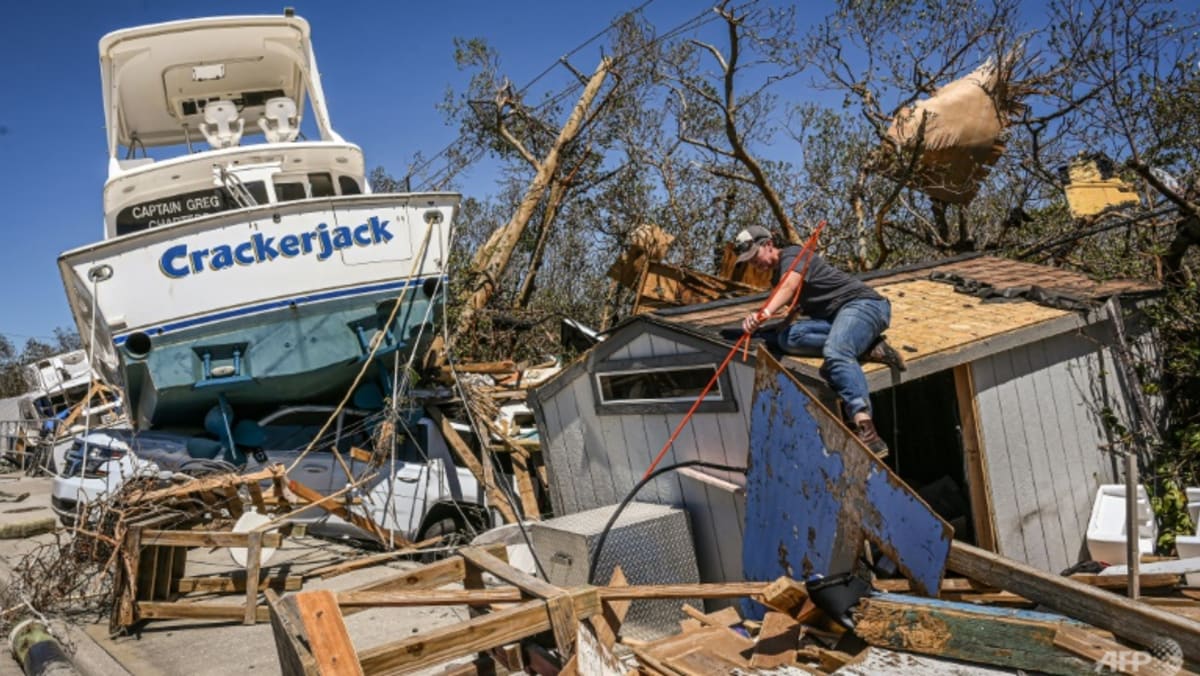Home insurance premiums soar as US grapples with cost of natural disasters
More populated coastal towns prone to storms and flooding will accelerate the trends of soaring premiums or policy dropping in the insurance markets, said Professor Benjamin Keys from the real estate and finance departments at the University of Pennsylvania’s Wharton School.
“We’ve seen insurers dropping their policies, dropping their coverage, saying we just don’t want to play ball in Florida anymore,” he said. “We’ve seen reinsurers sharply increasing their prices for backing these insurance policies. And I think the issue now becomes: How will the state step in?”
Currently, insurance across the country does not cover flood damage. Instead, the US government sells flood protection but it has been losing money for the past five years.
The federal flood programme has racked up US$20 billion of debt since 2017 from flood coverage alone, and Hurricane Ian is predicted to add another US$10 billion in losses.
CAN CLIMATE CHANGE INTENSIFY HURRICANES?
Scientists have said that climate change is making hurricanes stronger.
Storms are fuelled by the temperature of the waters across which they form. The ocean absorbs almost all the extra heat that humans are producing, with much of it concentrated around the water’s surface.
The heat can sustain a storm’s intensity and cause stronger winds. Rising sea level also means waves are reaching further inland, creating more havoc on land and wrecking more homes.
“There is wind damage, there is no question. But I’ve toured up and down the state and I would say the flood far exceeds the wind damage in terms of what I’m seeing,” Florida Governor Ron De Santis tweeted after observing the damage caused by Hurricane Ian along the state’s coastal towns.
With insurance premiums expected to climb following Hurricane Ian, experts are calling on policymakers to reassess the areas homes should be built in, and how they can be financially protected.
“This is a crisis that we’ve already been sleepwalking towards, which is the increasing unaffordability or unavailability of insurance in highly climate-exposed areas,” said Professor Paula Jarzabkowski from the University of Queensland.
“And Hurricane Ian, I believe, will be a tipping point,” he added.
For all the latest world News Click Here

